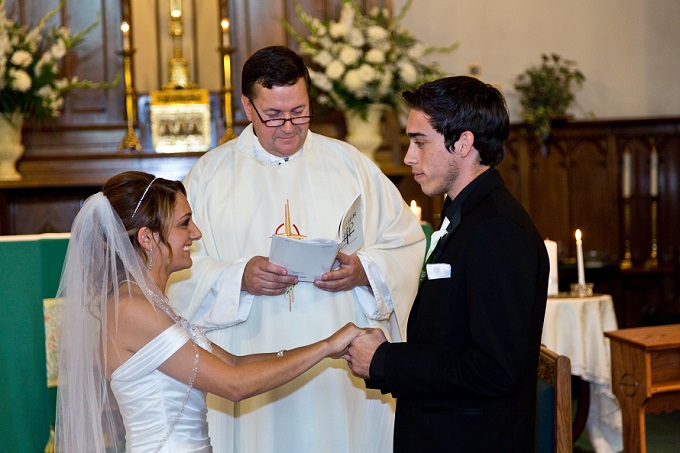
A lot of us would be glad to have a sacramental "tip chart". But there's no universal standard. The services of a priest to his parishioners are without charge. We don't pay for blessings or for the sacramental ministry of the church. These are the rights of every baptized member, and the duty of every ordained minister of the church.
Each bishop sets a marriage stipend for his diocese. This fee covers marriage preparation (i.e. Pre-Cana classes, weekends, counseling) and paperwork (publishing banns, contacting your parish of origin for records). It includes heat, lights, use of the church facility, and janitorial cleanup. When you approach a parish, they'll inform you what the marriage stipend is. This is not, I want to stress, an offering for the priest's services or payment for the sacrament.
So the priest himself isn't paid for services rendered. HOWEVER: Your hairdresser gets a tip. Your garbage collector gets a Christmas bonus. Anyone who provides good care is acknowledged by your generosity. So it's customary to acknowledge the priest, music director, and all who serve you with an offering of thanks. As follows:
Wedding Offerings: Priests I've talked to say this varies depending on the means of the individuals. A poor couple might not make any offering; a rich couple may offer $1000. The average wedding offering to the priest is $100. If a couple requires a great deal of extra time and investment (say, to annul a former marriage, or two, or three) and the priest does a wonderful job getting all that paperwork rolling, the couple may want to acknowledge this with a larger stipend.
Sick calls: Hospital calls often occur in crisis and there's no expectation of an offering. If family members are at the bedside and the priest has come a long distance, gas money is a thoughtful gesture. If the priest comes to the home at the family's request during a long illness, a gift of $5 to $50 is typical—depending on the family's means.
Funerals: Funeral offerings are often overlooked. Families may be consumed by loss, especially if death was unexpected. A gift of $5 to $50 is a typical offering, depending on the family's means.
Bottom line: Offerings are truly gifts, not coerced and not payments. Especially when the priest does a spectacular job of assisting the family, it's a kindness to let him know you're grateful.
Scripture: Luke 10:1-9; 1 Timothy 5:17-18



